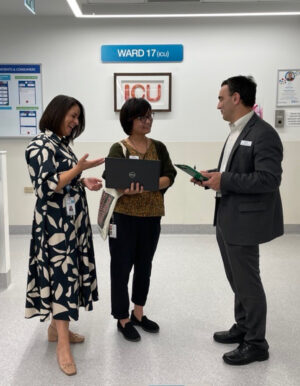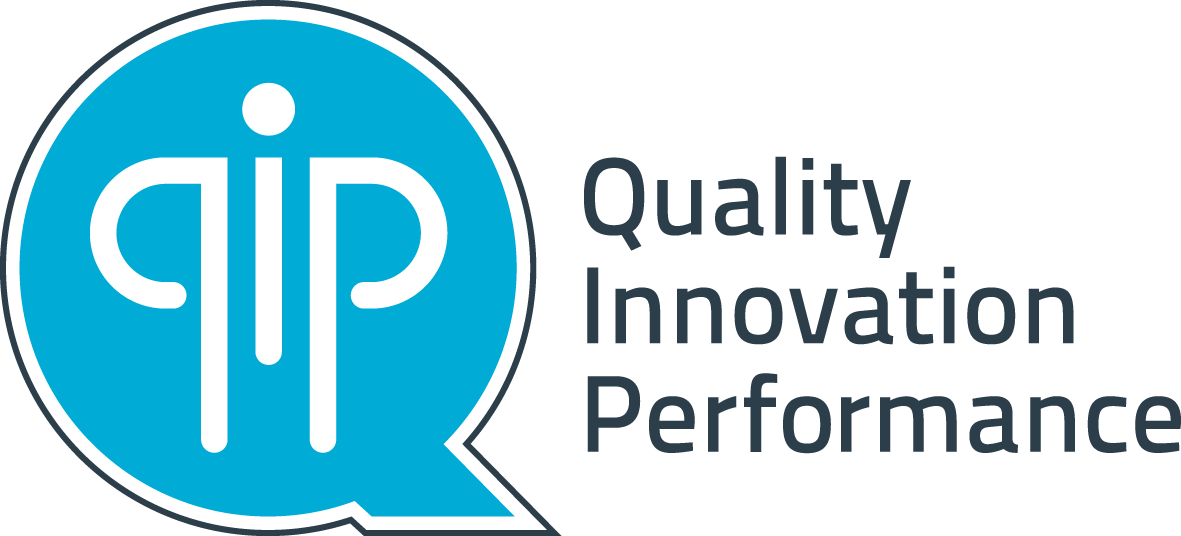Latest news

Assessors in Focus: Jason Cirone

Jason Cirone initially joined Quality Innovation Performance Limited (QIP) as an assessor in 2014, where he focused on small health services assessing against the CIC and HSS Standards, before transitioning to the National Standards in 2021. As the current Chief Allied Health Officer (CAHO) at Northern Health in Victoria, Jason brings a wealth of knowledge, passion and experience to the QIP Assessor Team. He firmly believes every healthcare leader; executive and board member should consider undergoing the accreditation process.
We had the privilege of interviewing Jason to gain valuable insights into his life as an assessor and how he effectively manages the demands of his full-time role while remaining deeply involved in the standards and accreditation process.
This article delves into Jason’s unwavering commitment to compliance, quality, and safety in healthcare. It also highlights his dedication to continuous learning, accountability, and ongoing improvements in standards to enhance patient care. If you are contemplating a similar career path, we invite you to read the full article below, where Jason shares his observations and knowledge as a QIP assessor.
“I always look forward to seeing pockets of excellence and innovations I have not seen before”
As the current Chief Allied Health Officer at Northern Health in Victoria and as someone who undoubtedly already has a very demanding schedule, what motivated you to become a QIP assessor?
Having been employed full time for what feels like forever, I know I can’t do assessments all the time, however even doing two or three assessments per year helps me to stay close to the standards and the accreditation process. I’ve always had a passion for compliance, quality and safety and feel that rather than being something extra, working with quality and safety standards is a part of what we should do every day.
I don’t see accreditation as additional to my duties as a CAHO, I see it as complementary. I am also committed to the patient experience. Health services have a clear and expected duty to provide high quality, consistent and safe healthcare. Patients have the right and expectation to attend a health service and receive a very high standard of care. Being an assessor, sometimes in a small way, helps the service sector be accountable for this standard of healthcare.
What do you enjoy most about being a QIP assessor and what value does your role as a QIP assessor bring to Northern Health?
Being on an assessment team and having the opportunity to visit an organisation, walk through wards, and interview staff and patients is a privilege. I always look forward to seeing pockets of excellence and innovations I have not seen before. It’s these things I feel I can bring back to Northern Health, and also share with the assessment team. And of course, where the assessment team notice under performance, if it’s consistent with other recent assessments then it should alert all of us to consider this for where we also work.
What I also enjoy about being an assessor is the chance to connect with other assessors. Assessments are long and sometimes challenging, however the evening meals and shared travel is a special part of the assessment experience.
What piece of advice would you give to someone considering becoming a QIP assessor?
I think anyone considering becoming a QIP assessor should be fully committed to the quality and safety of patient care, and be able to work through an intense assessment period. The days onsite seems to go really quickly, so we need to be focused on what we need to collect and investigate. It’s also important to note that the standards aren’t static, the advisories and interpretations continue to evolve. We all need to keep up to date, so ongoing learning is part of the role.
In your opinion, what are the most crucial qualities or skills that a successful QIP Assessor should possess?
The best assessors I have worked with have all had excellent interpersonal skills, which are required to investigate and collect the necessary evidence we need. Whilst many staff on assessments are polite and accommodating, others can be less open about evidence and performance in an area. The ability to work through those conversions is crucial in getting to and end point on an action. In fact, how the whole assessment team interacts with the health service is important, as it can facilitate quick availability of evidence and help the assessment go smoothly. It also helps when sharing not-so-good news.
Tell us about a recent assessment you undertook and any challenges or improvements that were highlighted. What stood out as key learnings from the assessment?
I was fortunate to be on a large health network assessment in July, which was a five-day assessment in a large assessment team. I had standard two and when I learnt of the health services Patient Family Representative model I was really impressed. This team was comprised of consumer representatives who were allocated to specific wards, and spent regular time on the wards talking to patients and staff, and being responsible for consultation, change and standard reporting.
With your fellow QIP assessors in mind, what was the most significant lessons learned from this experience?
We all thought this (Patient Family Representative model) was a unique model and was an excellent way to connect the health service with its patients. The use of the group in planning also meant it helped the health service to meet many actions within standard two.
In your experience, what are some of the common themes in areas for improvement in the delivery of healthcare?
Governance is an area for improvement in some of the health services I have visited over the years. Having the right committees, with the right members, and overseeing the right data, has been a shortfall. It is challenging for smaller health services, however if key meetings and reports are not in place, then monitoring is made very difficult. Audits, risks and standard reports need to be collected, monitored and reported to management, the executive and board. This is how the organisations leaders are made aware of healthcare performance (and concerns) and can have the opportunity to intervene when necessary.
How does accreditation work as a solution to improve upon these concerns?
The national standards and the accreditation process are an excellent mechanism to help improve governance. Standard one, as well as the first actions of standards 2-8, provide a clear and prescriptive pathway for health service to understand their clinical governance requirements and how to embed them in their health service. The accreditation process, particularly now that we have moved to Short Notice Accreditation, ensures health services are focused on implementing these practices every day.
It’s been a pleasure to speak with Jason, whose unwavering dedication to the pursuit of excellence in healthcare services is truly inspiring. Jason’s journey as a QIP Assessor is a testament to his commitment to improving healthcare quality and outcomes.
Jason’s extensive experiences and valuable insights have already made a significant impact in the field of healthcare assessment. His willingness to share his knowledge and offer guidance not only showcases his passion for the work but also reinforces the vital role that QIP and its assessors play in promoting excellence in healthcare services.
As we continue to work with Jason throughout his time as a QIP Assessor, we have every confidence that his experiences and insights will benefit the numerous organisations he supports through QIP accreditation. His dedication to helping healthcare providers achieve and maintain the highest standards of quality care is a beacon of hope for the industry.
If you find Jason’s journey as a QIP Assessor interesting, please don’t hesitate to reach out to a member of our Workforce Management Team or check out our assessor eligibility criteria. Your commitment, much like Jason’s, could make a lasting impact on healthcare quality and outcomes.



